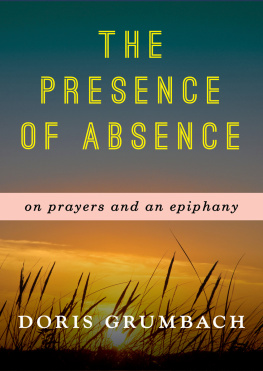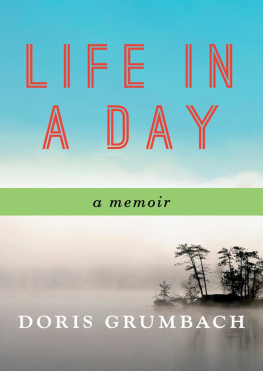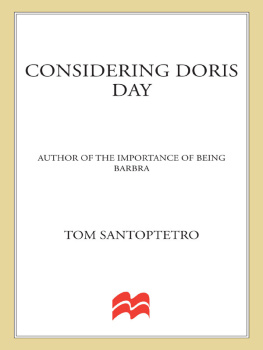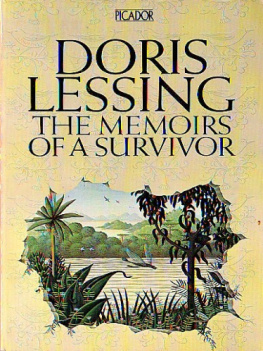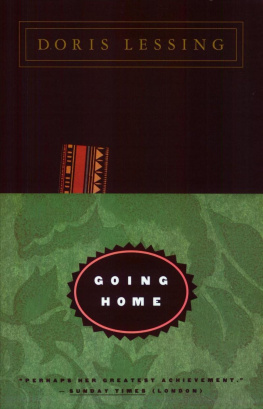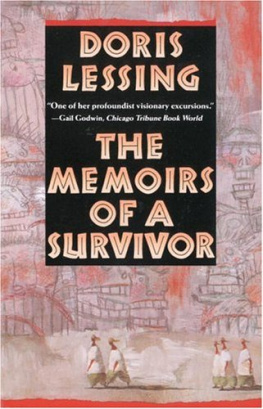Fifty Days of Solitude
I N A LETTER sent to me from Hereford, England, the writer D. M. Thomas explained why he had left his academic appointment at American University in Washington, D.C., so precipitously: It was a dreadful thing to domy flightbut I had a sense of being in peril, as a person and as a writer (the same thing). I knew that if I spent three months being the successful author of The White Hotel I would quite likely become that and that only. I have to be the unsuccessful writer of the blank page before me.
Every ounce of acknowledgment of ones worth, however little, by the outside world, each endorsement of what I have become (no matter how insignificant), puts me in danger. In order to move forward in my work and deeper into the chambered nautilus of the mind that produces it, I need to retreat from praise from the world, from the arena of critical recognition. I must become, over and over again, Thomass unsuccessful writer, searching desperately for ideas, furiously digging for words and images, laboring to form good sentences to fill the blank page. In any other frame of mind, if I try to write from the exhilaration of the heights instead of the despair of the depths, I am deluded about what I am doing by the falsely elevated view of what I have done.
I had been granted fifty days in the hard winter of 1993 in which to attempt a trial return to the core of myself, staying entirely alone. My companion, Sybil, had gone away to the city to search for books for her store. A strong wind had disconnected the antenna to the television set. I silenced one telephone; the other was left with instructions to the caller to leave a message but with no promise that I would return the call. I was now alone with music, books, an unpopulated cove (the ducks and gulls sensed my desire to be alone and seemed to have gone off to some other protected water farther south), and with that frighteningly reflexive pronoun, myself.
At first I found I missed another voice, not so much a voice responsive to my unexpressed thoughts as an independent one speaking its own words. On occasion, I spoke aloud, only to surprise myself. My voice sounded low, toneless, and coarse. I thought: it would be agreeable to be answered in another, more pleasing tone, even to be contradicted, gently.
There was a reward for this deprivation. The absence of other voices compelled me to listen more intently to the inner one. I became aware that the interior voice, so often before stifled or stilled entirely by what I thought others wanted to hear, or what I considered to be socially acceptable, grew gratifyingly louder, more insistent.
It was not that it spoke great truths or made important observations. No. It simply reminded me that it was present, saying what I had not heard it say in quite this way before. It began to point out the significance of the inconsequential, of what I had overlooked in my hunger for what I had always before considered to be the important, the Big Things. The noise of the world suddenly shrank to what this new voice told me, and I became aware that, with nothing to interrupt it, it now commanded my entire attention. I listened hard to it, more intently than I had to the talk of my friends in the world.
In this way, living alone in quiet, with no vocal contributions from others, no sounds (except music) from beyond my own ear, I was apt to hear news of an inner terrain, an endolithic self, resembling the condition of lichens embedded in rock.
My intention was to discover what was in there, no matter how deeply hidden, a process not unlike uncovering the treasure that accompanied the body of a Mayan king, hidden in a secret room in a tomb within a pyramid. I thought that if everything beyond myself was cut off, the outside turned inside, if I dug into the pile of protective rock and mortar I had erected around me in seventy-five years, perhaps I would be able to see if something was still living in there. Was I all outside? Was there enough inside that was vital, that would sustain and interest me in my self-enforced solitude? A treasure of fresh insight? A hoard (in the Wagnerian sense) of perceptions that had accumulated, unknown and unnoticed by me, in the black hole of the psyche?
I DID not cut myself off from the written words of others, figuring that there would be no interruption to an interior search if I heard only the unspoken (but unfortunately not unheard) voices in books. For some reason I cannot fathom I would sometimes pick up a book to readMoon Palace by Paul Auster, for exampleand come upon a reference to the hermetic life. In the middle of that excellent book, the painter Effing (an assumed joke-of-a-name for one of the heroes) is lost in a western canyon, finds the cave of a murdered hermit, disposes of the dead man, moves into his cave, and assumes his life.
At first he is happy:
Then, very suddenly, this sense of calm abandoned him, and he entered a period of almost unbearable loneliness. The horror of the past months engulfed him, and for the next week or two he came dangerously close to killing himself. His mind swarmed with delusions and fears, and more than once he imagined that he was already dead, that he had died the moment he had entered the cave and was now the prisoner of some demonic afterlife. After two weeks, he slowly began to return to himself, eventually subsiding into something that resembled peace of mind. It couldnt go on forever, he told himself, and that alone was a comfort, a thought that gave him the courage to continue.
There was much in that paragraph to consider, although Effings situation differed from mine: he was hiding out from those who would surely come looking for him. But for the rest, I wondered how long I could live a completely eremitic life without losing track of reality, another way of saying that I became mad. Would limiting my social contacts to animals, as Dian Fossey did to her beloved mountain gorillas, save me from obsession and madness or perhaps, as in her case, drive me further into it?
I wondered how long it would be before the wonderful calm that commanded my mind at the start of isolation turned into unbearable loneliness. I knew what Effing learned (and Helen Yglesias reminded me of in the correspondence we carried on during my fifty days, she in Florida, I in Sargentville), that being assured of an end to the period of solitude made it possible to bear it with composure, even pleasure.
One of Effings accomplishments in his year in the cave was to realize he had to devise a disciplined life. For two and a half months he painted, all day, every day, the magnificent landscape beyond his mountain. For the first time in his professional life he stopped worrying about results, and as a consequence the terms success and failure had suddenly lost their meaning for him. The true purpose of art was not to create beautiful objects, he discovered. It was a method of understanding, a way of penetrating the world and finding ones place in it, and whatever aesthetic qualities an individual canvas might have were almost an incidental by-product of the effort to engage oneself in this struggle, to enter into the thick of things. He was no longer afraid of the emptiness around him.



